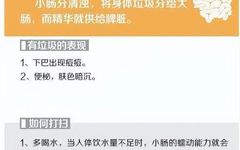To prevent not finding it next time
Traditional Chinese Medicine (TCM) believes that the five organs of the human body can store various nutrients needed for life activities, physiology, and pathology, while the six bowels mainly refer to some hollow organs in the thoracic and abdominal cavities, which have the functions of digesting food, absorbing nutrients, and excreting waste.
The five organs include the heart (xin), liver (gan), spleen (pi), lungs (fei), and kidneys (shen), while the six bowels mainly include the gallbladder (dan), stomach (wei), small intestine (xiao chang), large intestine (da chang), bladder (pang guang), and san jiao (triple burner).
The five organs and six bowels are important components of the body, each organ has different functions, and any organ that undergoes pathological changes can lead to health problems.
The heart governs the spirit and plays a significant role in cognitive activities;
The lungs govern qi; when lung function is normal, the airways are unobstructed and breathing is even;
The main function of the kidneys is to store essence, which is the material basis for normal bodily activities;
The liver’s function is to store blood;
The primary role of the spleen is to assist in the digestion of food and the transportation of nutrients;
The main function of the stomach is to digest food;
The gallbladder is attached to the liver, and normal bile secretion is essential for the liver’s proper functioning;
The bladder’s main function is to store and excrete urine;
The function of the san jiao is to facilitate the body’s qi transformation and ensure the normal operation of water and grain;
The small intestine further digests and absorbs nutrients;
The main function of the large intestine is to absorb water and eliminate waste.
What Problems Can the Five Organs and Six Bowels Encounter?
When there are issues with the heart, there may be a feeling of tightness in the chest accompanied by stabbing pain, which may also radiate to the left arm, causing a sensation of soreness, numbness, and swelling.
When there are issues with the liver, one may experience tenderness in the right upper abdomen, soreness in the lower back on the right side, soreness and numbness in the right shoulder, and leg cramps.
When there are issues with the kidneys, one may feel soreness in the lower back, pain in the back, and stiffness in the neck.
When there are issues with the spleen and stomach, one may frequently experience migraines, especially on both sides of the temples, accompanied by constipation.
When there are issues with the small intestine, one may often suffer from unexplained pain, such as on both sides of the neck, the outer shoulders, and sore throat.
When there are issues with the large intestine, one may feel dry mouth and bitter taste, accompanied by toothache and discomfort on both sides of the neck.
When the body is ill, the five organs and six bowels will also send us special signals. A senior TCM practitioner tells you that if the five organs and six bowels show the following signals, it is necessary to pay attention and check if you have them.
Senior TCM Practitioner: Overview of Signals from the Five Organs and Six Bowels, Do You Have Them? Recommended for Collection
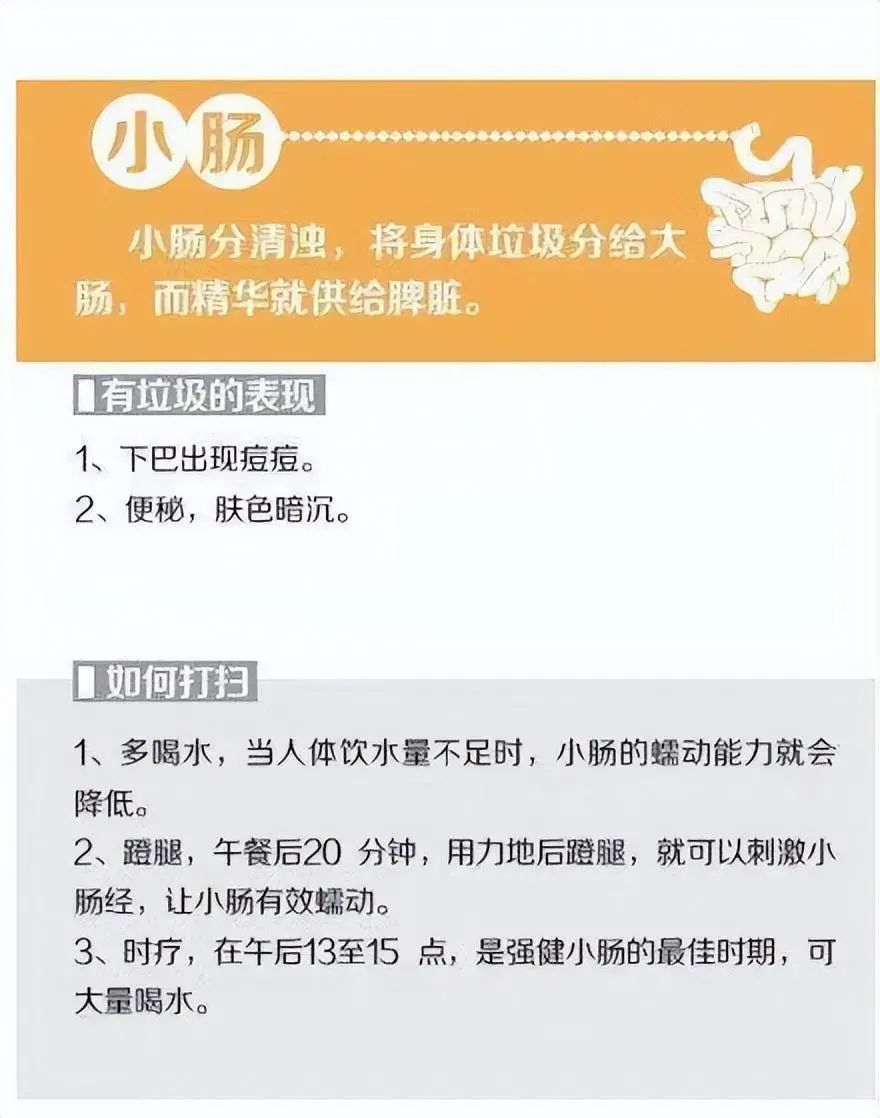
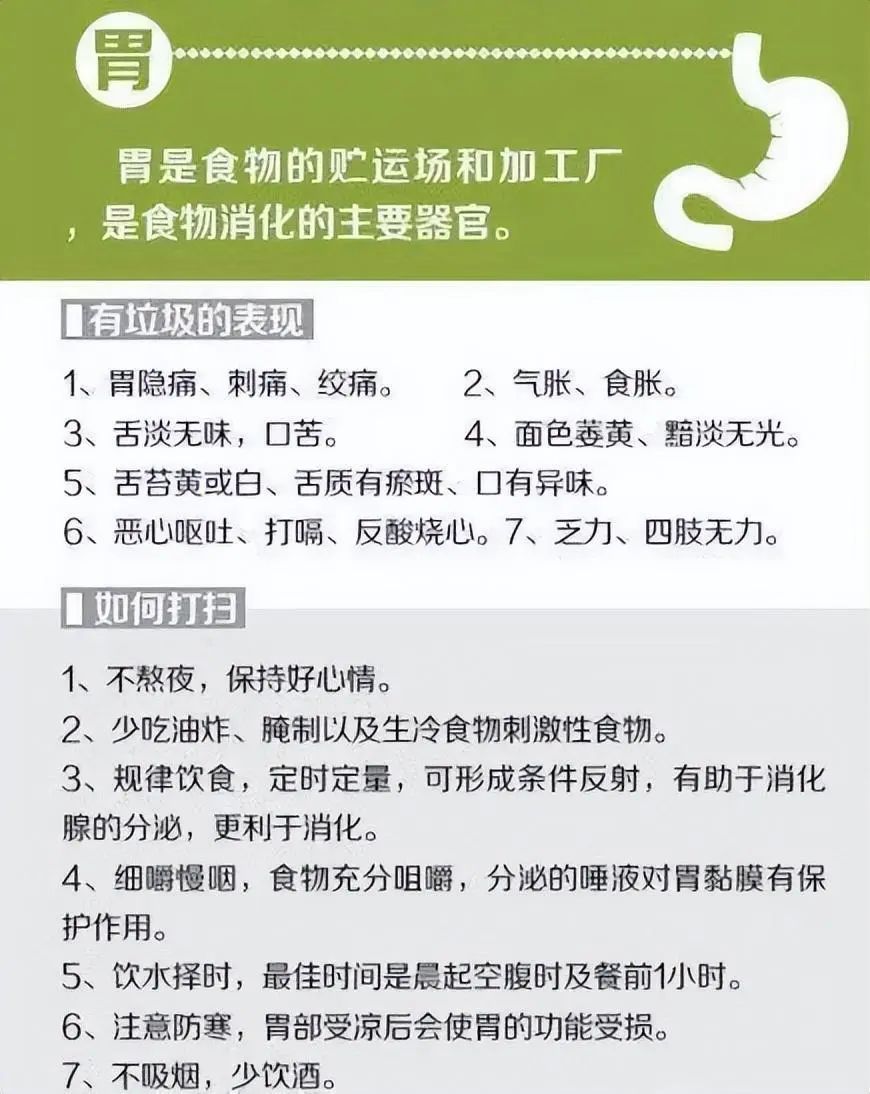
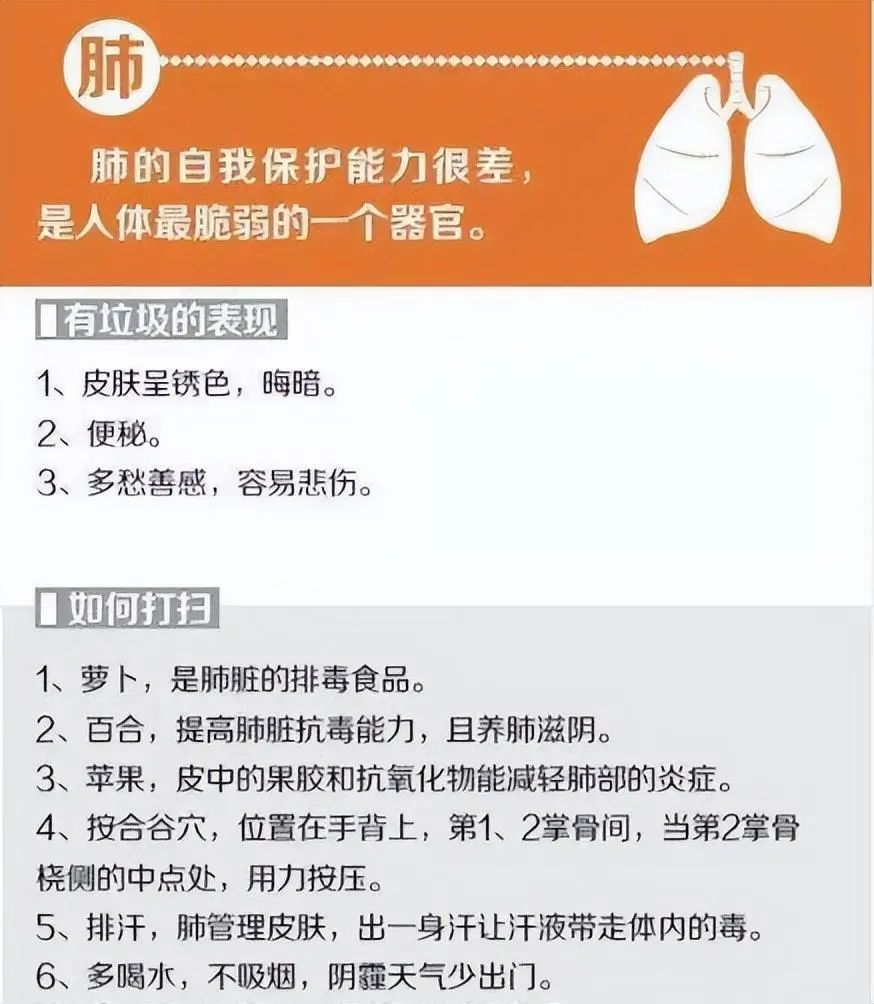
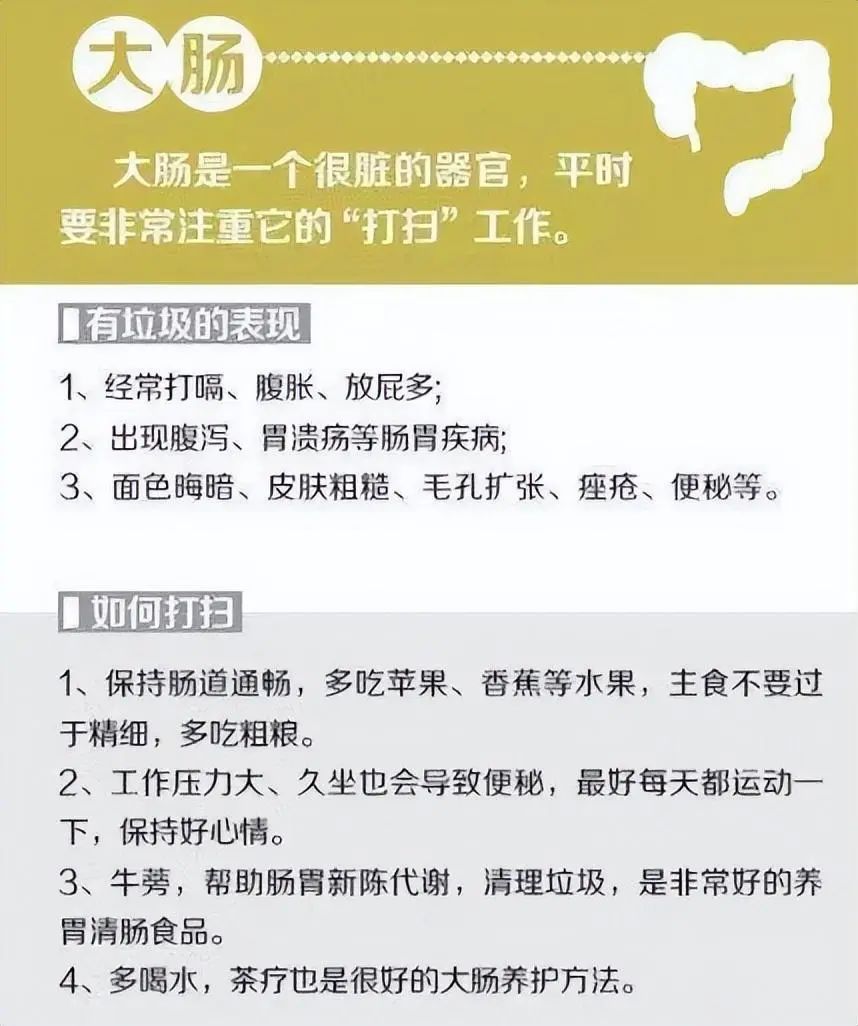
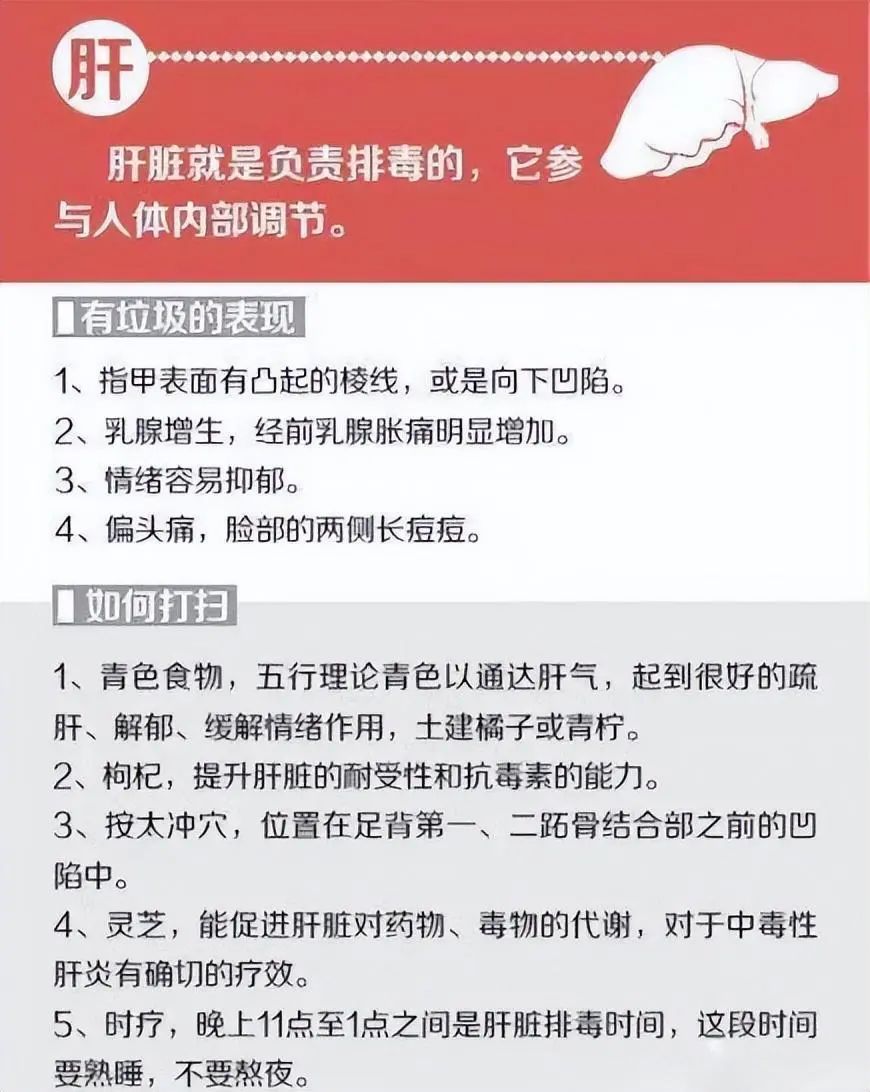
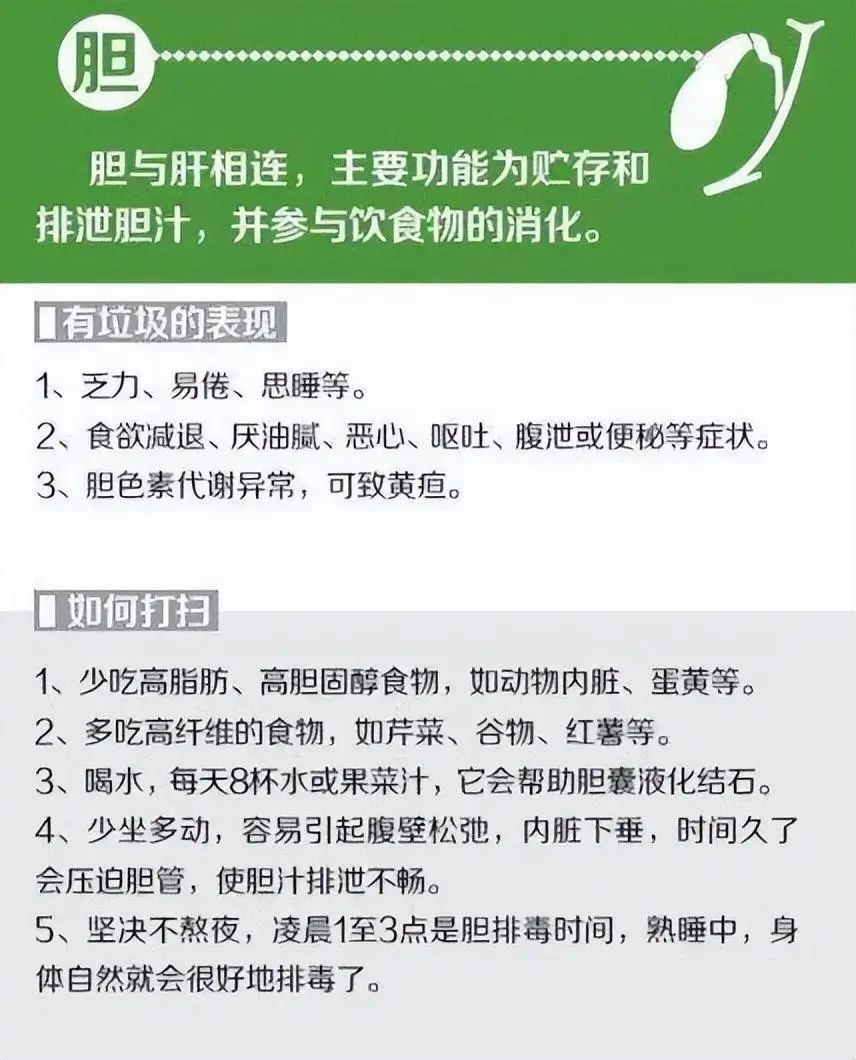
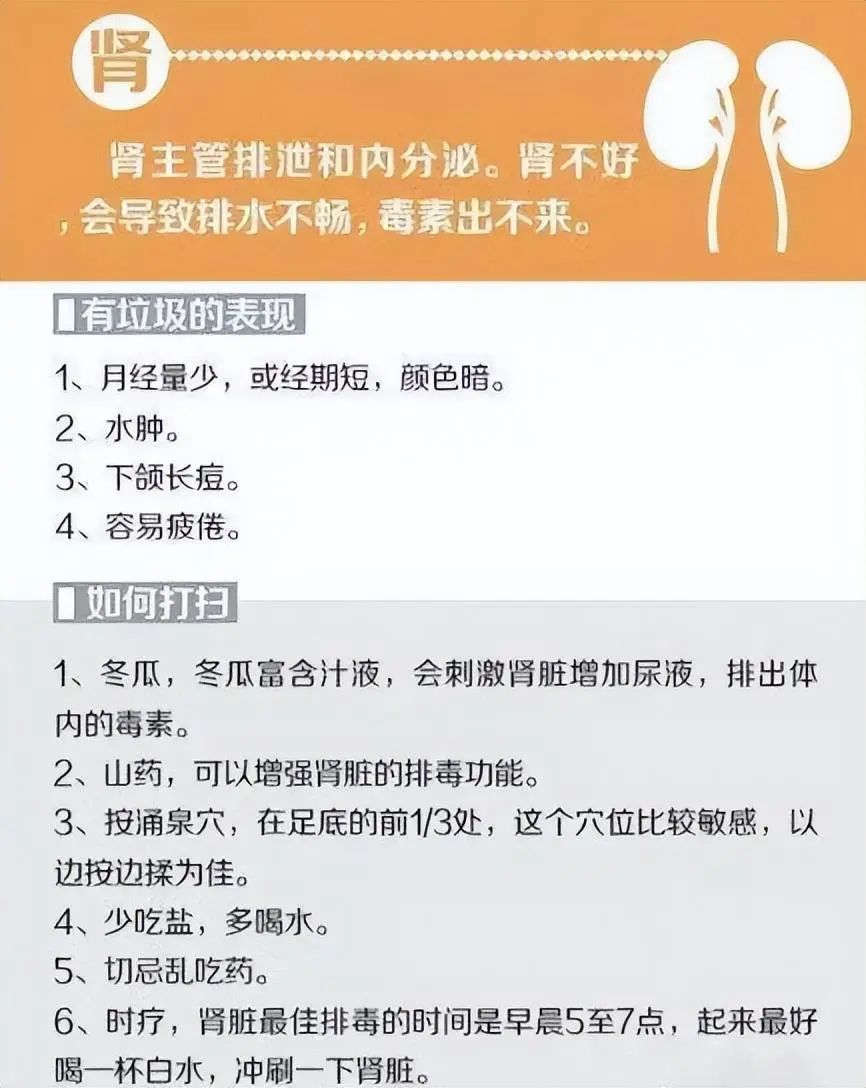
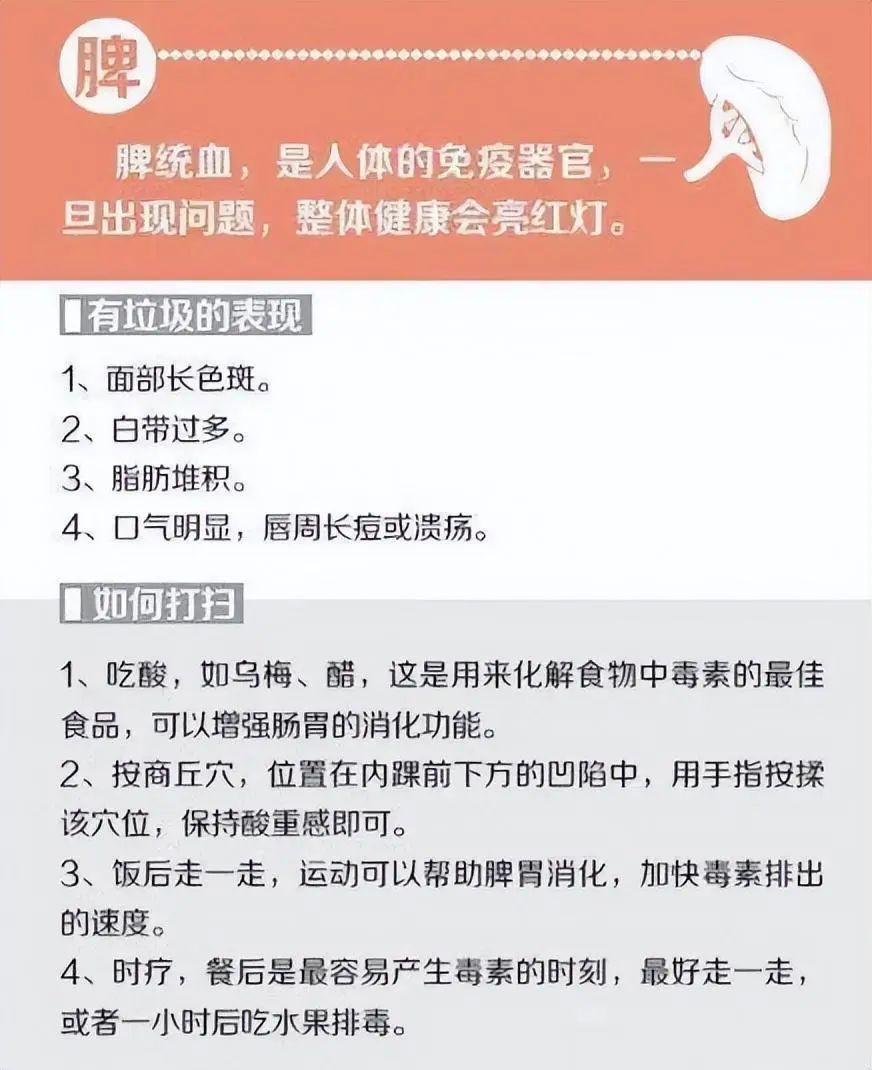
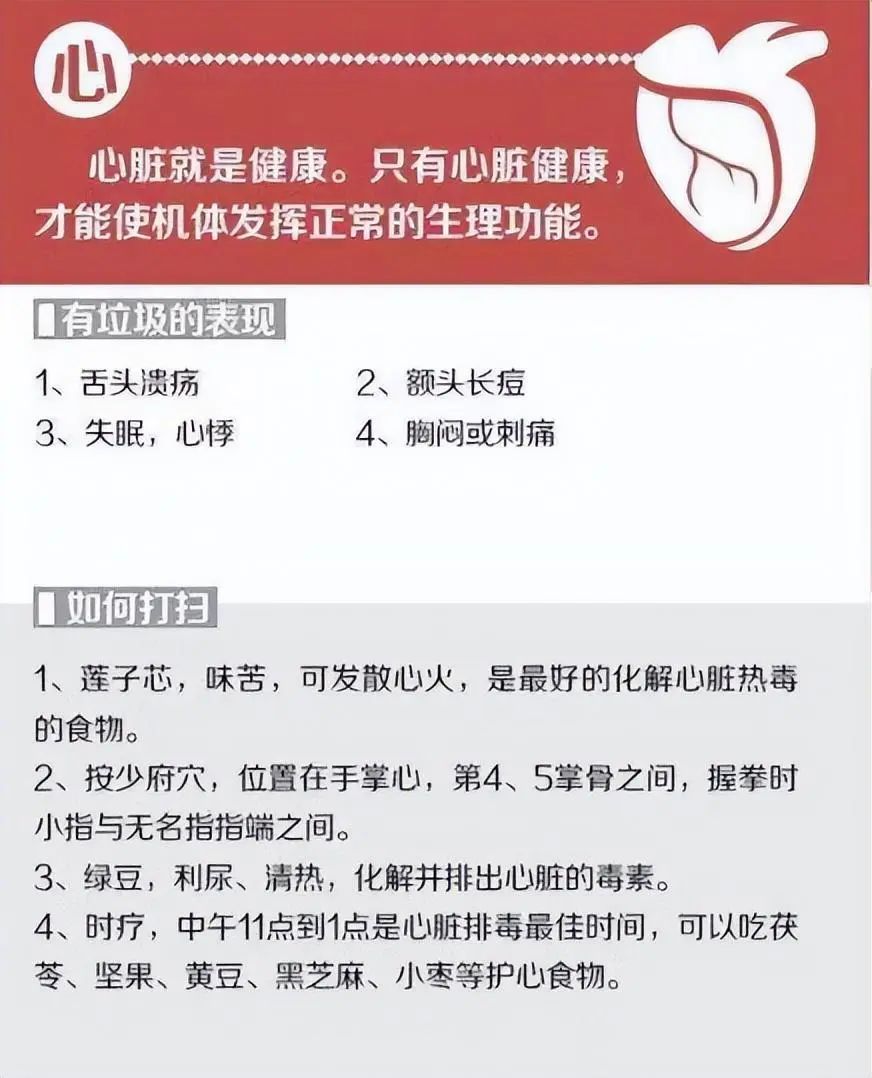
Through the above sharing, I believe everyone has made it clear that if there are problems with the body in daily life, dietary therapy and massage methods can help alleviate symptoms.
If you find it useful, 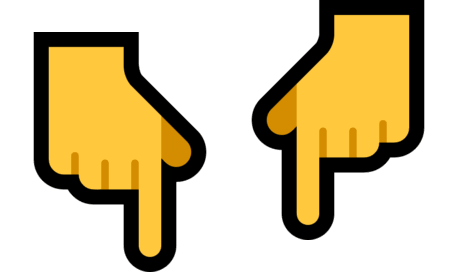 remember to follow!
remember to follow!
The editor shares good articles with friends
1. 6 inexpensive and effective medicines from pharmacies that staff generally won’t recommend, you might want to note them down
2. Pharmacopoeia: 3 types of Chinese herbs have been banned! They have nephrotoxicity and can cause cancer; don’t think they are good medicines
3. Have we been deceived by the 8-hour sleep theory? Perhaps this is the correct way to sleep, don’t be misled
4. 5 small sleeping habits that make you look older than your peers; if you don’t want to be called “Auntie”, try to change them
Likes are a form of encouragement Sharing spreads joy
After reading, click “Looking at”

